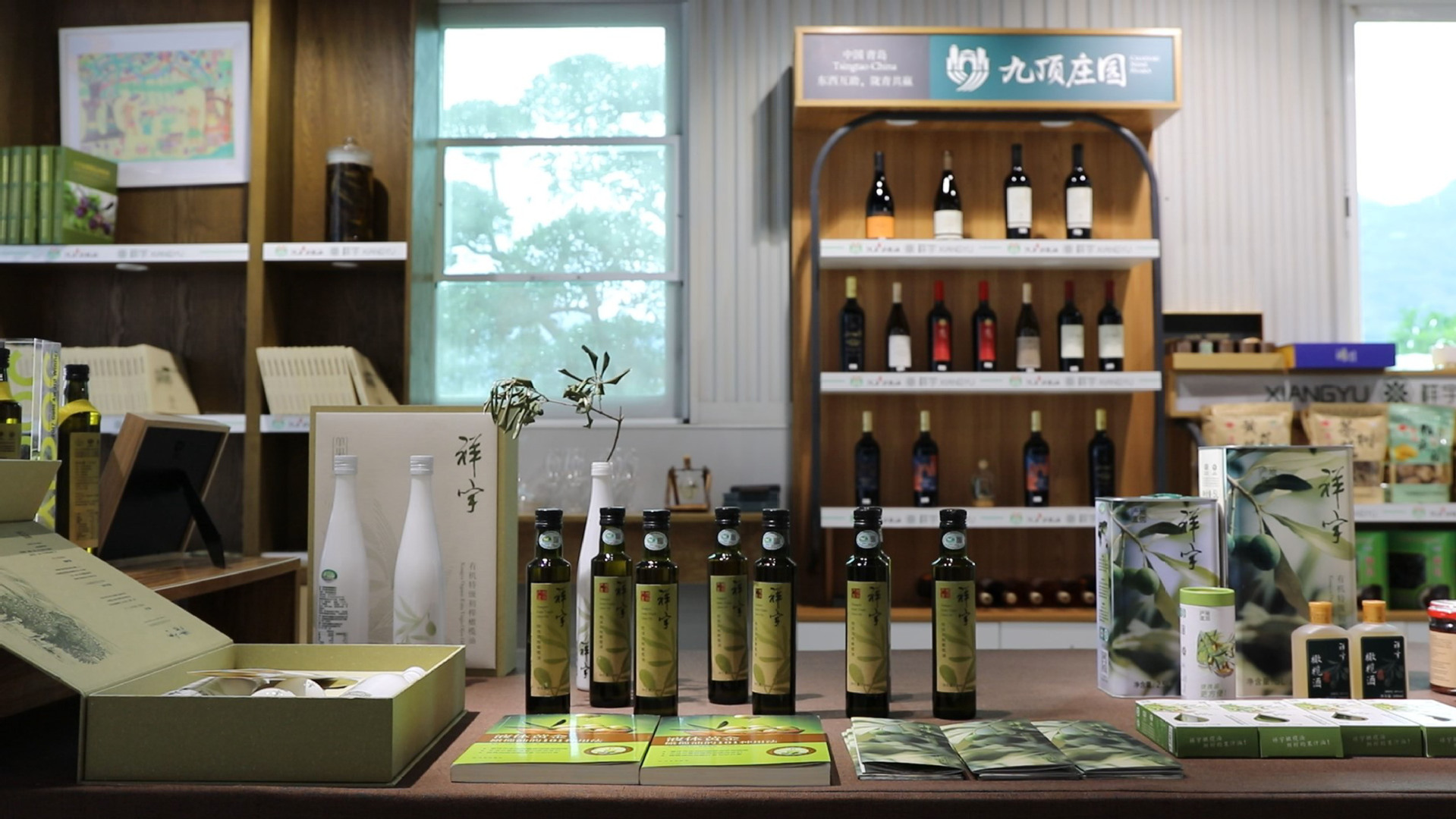Olives link Northwest China with world


LANZHOU -- When an international olive oil competition announced its winners in Greece in late June, excitement rippled across the village of Daoqi in Northwest China.
"The award-winning olive oil was made from our fruit," said Ru Ciming, 50, an olive planter from the village under the city of Longnan, Gansu province.
The variety of olive trees in Ru's orchard was introduced from Spain. In the eyes of locals, the foreign trees have not only pulled the city, once among the least-developed regions in China, out of poverty, but they have also brought them international renown.
Olives originated in the Mediterranean and their oil, often called liquid gold, is used widely in food, cosmetics and medicine. In the 1960s, the Albanian government gifted China more than 10,000 olive saplings, which were then planted in many parts of the country on nationwide trials.
Longnan began to plant olive trees in the early 1970s and experts concluded that the region was ideal for the resettlement of the olive trees due to its climate and soil condition. After years of experiments and promotion, it is now the largest olive cultivation base in China.
In recent years, the local olive oil industry has continued to expand as Longnan has enhanced cooperation with Mediterranean countries that boast a long history of olive planting, including Italy, Greece and Spain. The enhanced cooperation aims to introduce better varieties and initiate technical exchanges.
Pedro J. Rodriguez Sanchez, a Spanish olive seedling expert, was one of the early contributors to olive exchanges. He arrived in Longnan in 2009, when only half of the local olive tree seedlings had survived. His technical guidance helped raise the survival rate to over 90 percent.
Zhao Haiyun, an official in charge of promoting the olive industry in Longnan's Wudu District, said that many more European experts have arrived since Sanchez. They have visited orchards to offer guidance to farmers, and helped companies improve their processing and storage procedures.
They have helped the district, as well as the city of Longnan, to jump on the bandwagon of China's rising demand for high-quality olive oil, especially among well-off urban families, said Zhao.
In 2021, Longnan's olive cultivation area grew to 42,000 hectares. Over 40,000 poverty-stricken households have profited from the olive sector, which has become a local pillar industry.
"Every drop of olive oil we produce is an example of the exchange and integration between China and abroad," said Li Gang, general manager of Gansu Times Olive Technology, a major olive oil producer in Longnan.
In 2019, the company spent more than 6 million yuan to introduce two advanced olive oil production lines from Italy. Li said the production lines had improved processing efficiency and the quality of olive oil, and helped the company win a prize at the olive oil competition in Greece.
And it was not the first time the Chinese-made olive oil had won recognition on the international stage.
In July last year, an olive oil product from Longnan Xiangyu Olive Development Company stood out among 430 samples from 17 countries to nab the top Double Gold award at the Athena International Olive Oil Competition. It was the first time a Chinese enterprise had won the honor.
Olive oil exchanges in Longnan have continued to prosper despite the COVID-19 pandemic. In March, Fernando Lugris, Uruguayan ambassador to China, visited several Longnan olive oil companies to deepen cooperation in variety introduction and technology exchange.
- Big lottery winners in Guangzhou claim prize
- No indication of big earthquake to occur in Ningxia, said officials
- Rural China tackles hefty bride prices to ease marriage burdens
- 8 killed, 15 injured in market fire in North China's Hebei
- 'Ferryman of souls' escorts cremains of veterans from Taiwan to mainland home
- China announces month-long online shopping event for Spring Festival





































